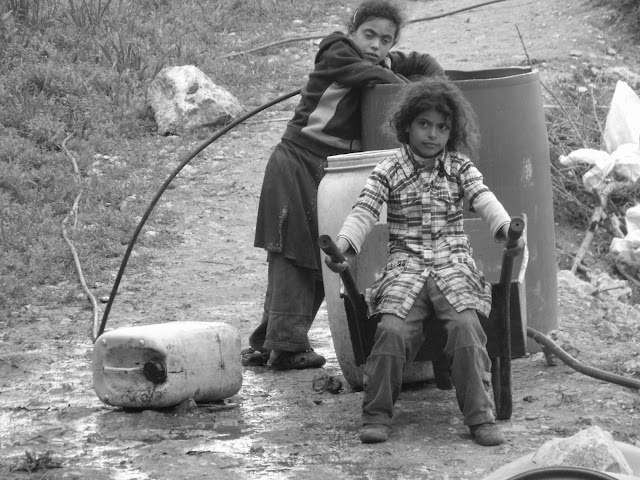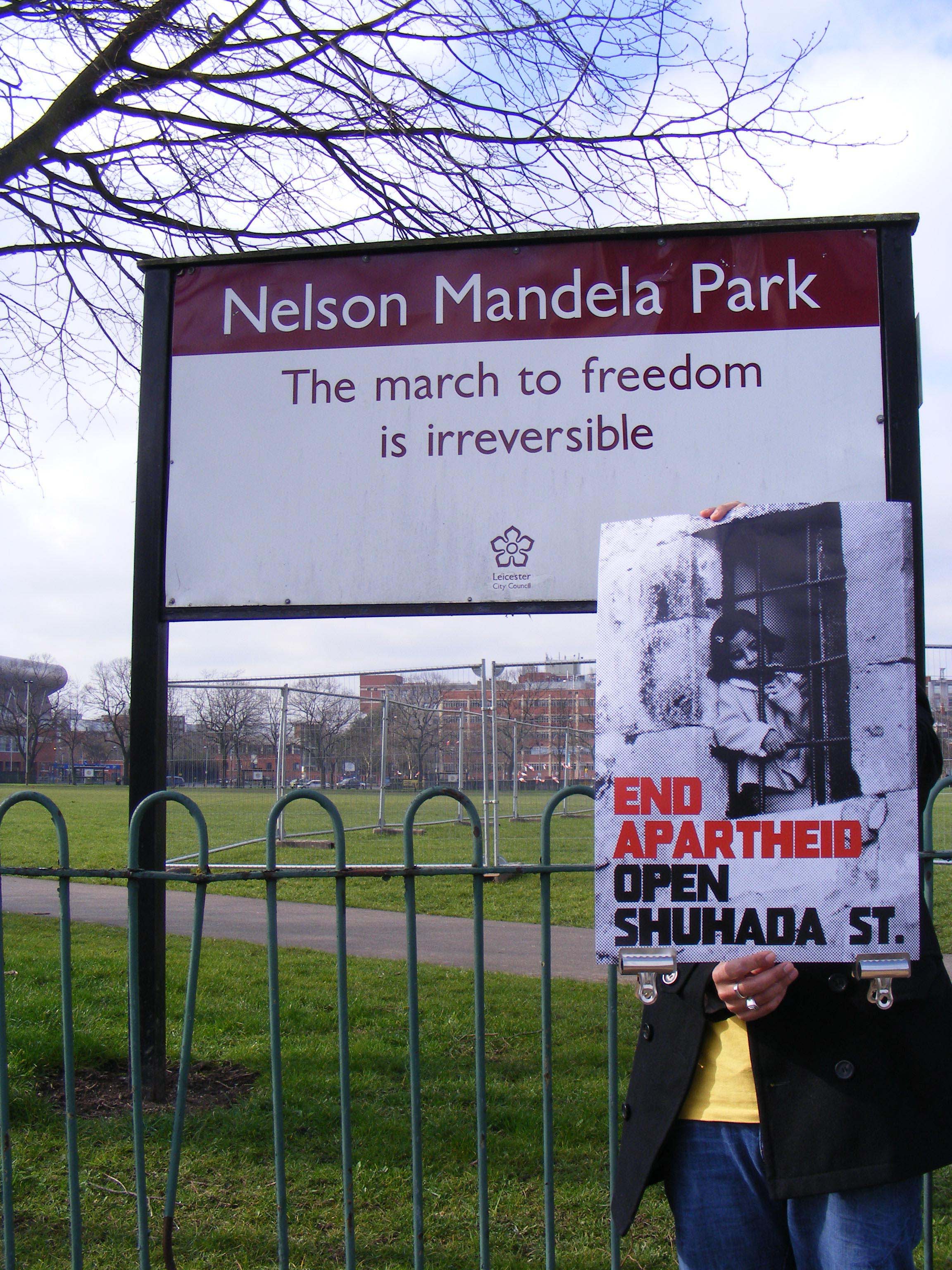Tag: Settlement
-
The strangulation of a village
by Sylvia 10 March 2012 | International Solidarity Movement, West Bank Sheikh Nasri looks resigned as he describes his home as “the most terrorised village in the country”. With 34,000 uprooted trees in the last two years and some 4,800 dunams of land stolen, the village of Al Jab’a has little to smile about. Eighteen…
-
Israeli flags hanged in Yanoun are a reminder of Itamar settler violence
by Ramon Garcia 7 March 2012 | International Solidarity Movement, West Bank The illegal settlement of Itamar, constructed illegally on the land of Aqraba, Awarta, and Beit Furik, has taken a provocative step of incitement in the village of Yanoun, from which Zionists have also stolen land. On 7 March 2o12 illegal settlers entered the…
-
International Solidarity: Photos for the liberation of Shuhada Street
5 March 2012 | International Solidarity Movement On February 20th, International Solidarity Movement put out a call for the international community to express their solidarity with the people of Al Khalil (Hebron) and the cause to open Shuhada Street. Individuals from all over the world took part in this symbolic campaign, which came just as…


